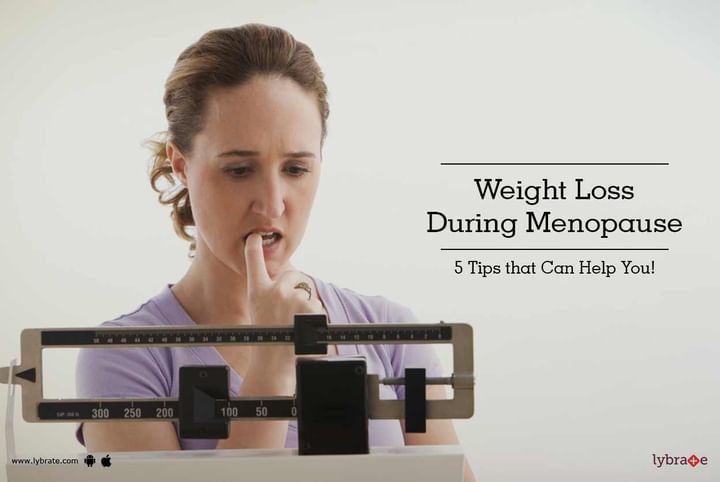Get the App
For Doctors
Login/Sign-up
Last Updated: Jan 10, 2023
BookMark
Report
Weight Loss During Menopause - 5 Tips that Can Help You!
Dt. Sangeeta MalikDietitian/Nutritionist • 38 Years Exp.Masters in Nutritional Therapy, Lifestyle & Weight Management, Sport Nutritions, graduation in Nutrition & Dietics
It is very common for women to gain weight post menopause. A range of factors are responsible for this, such as slow metabolism, degradation of the muscle tissue and hormonal fluctuations, resistance to insulin, inadequate sleep to name a few. To make things worse, the fat on the thighs and hips gets transferred to a lower portion of the abdomen. This not only makes the whole body posture ugly, but increases the risk of heart diseases and diabetes. It is therefore very important to lose weight and maintain the right BMI.
Here are a few tips that can help do just that:
- Calorie count: Contrary to the popular belief, a drastic restriction in diet can do more harm than good. A less calorie count results in muscle loss and restricts the ability to digest protein. A better strategy, therefore, is to watch out for portion size rather cutting down on the diet. Frequent eating in small quantities can help in ensuring that the body retains its metabolic rate and weight gain is restricted at the same time.
- A healthy diet: A healthy diet necessarily need not restrict to fruits and vegetables. It essentially means cutting down on junk and processed food. In this regard a low carb diet greatly helps in losing weight, so is the case with a vegetarian and Mediterranean diet. However, be it any diet, the important thing is to ensure that it is freshly prepared and consumed at the right quantity.
- Exercise: Exercise is perhaps the single most important factor after or during a menopause. It not only helps to lose weight but helps to improve the mood, improve bone density and helps the body to tackle muscle loss. Cardio and aerobic training are known to be extremely effective for the purpose of losing weight. A recent research report suggests that performing repetitive exercise can be more effective than performing a variety of exercises. The trick is to keep the exercise schedule going every single day.
- Getting adequate rest: In order to maintain a healthy weight, getting adequate sleep is extremely important. People who tend to sleep little have a higher concentration of ghrelin hormone. The latter is known as the hunger hormone of the body that is responsible for the urge of eating. Less sleep also decreases the level of leptin hormone that gives a sense of fulfilment to an individual. Many women reportedly suffer from sleep inefficiency and suffer from night sweats, hot slashes, and stress. If such behaviour continues for long, medical help is necessary.
- Stay away from stress: Stress relief plays a pivotal role in ensuring that a person does not put on weight during the menopause. Apart from contributing to weight gain, stress can result in lead to heart diseases, elevated cortisol, and abdominal fat. If you wish to discuss about any specific problem, you can consult a gynaecologist.



+1.svg)
